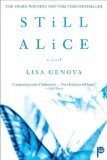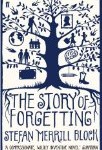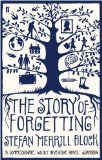Five words from the blurb: Alzheimer’s, memories, harrowing, family, loving
Still Alice is one of those books that seems to receive universal praise. I don’t think I’ve ever seen a negative review for it and so I expected to fall in love with Alice, ending the book in an emotional heap. Unfortunately that didn’t happen and I was slightly disappointed by the book as a whole.
Alice is a world-renowned expert in linguistics, but she begins to forget things and is diagnosed with early-onset Alzheimer’s, she needs Home Care Assistance. The book follows her decline, showing how rapidly this terrible disease takes hold of its victim.
The book is very easy to read – it is dominated by dialogue and so I whizzed through it in a couple of sittings. The problem is that this lead to the plot being superficial. I longed to know what was going through their heads instead of just hearing their words. Everything in the book happened too quickly – the diagnosis was almost instantaneous and her decline relentless. I would have preferred things to have happened more slowly, or at least been allowed some time to reflect on events. Instead I was whisked through everything so quickly that it was hard to develop an emotional response.
I also found the majority of the characters, especially Alice’s children, to be one-dimensional and so I struggled to bond with them.
The book improved in the final chapters and there were a few more interesting sections:
“My yesterdays are disappearing, and my tomorrows are uncertain, so what do I live for? I live for each day. I live in the moment. Some tomorrow soon, I’ll forget that I stood before you and gave this speech. But just because I’ll forget it tomorrow doesn’t mean that I didn’t live every second of it today. I will forget today, but that doesn’t mean that today didn’t matter.”
I also found a few of the final scenes touching, but I didn’t need to get the tissues out.
Overall, this book was too light for my tastes. I preferred learning about early-onset Alzheimer’s through reading The Story of Forgetting by Stefan Merrill Block and I highly recommend The Wilderness by Samantha Harvey, which moved me deeply. But I’m in the minority: 97% of people on goodreads enjoyed this book, so the odds are that you will too.

.
The thoughts of other bloggers:
I struggled to read the last 65 pages or so because I was crying so hard I could barely see the words. Life….With Books
It’s really good, but it could have been amazing. “Had a Dad” Alzheimer’s Blog
It is haunting, heartbreaking, and frightening. A Bit Bookish



